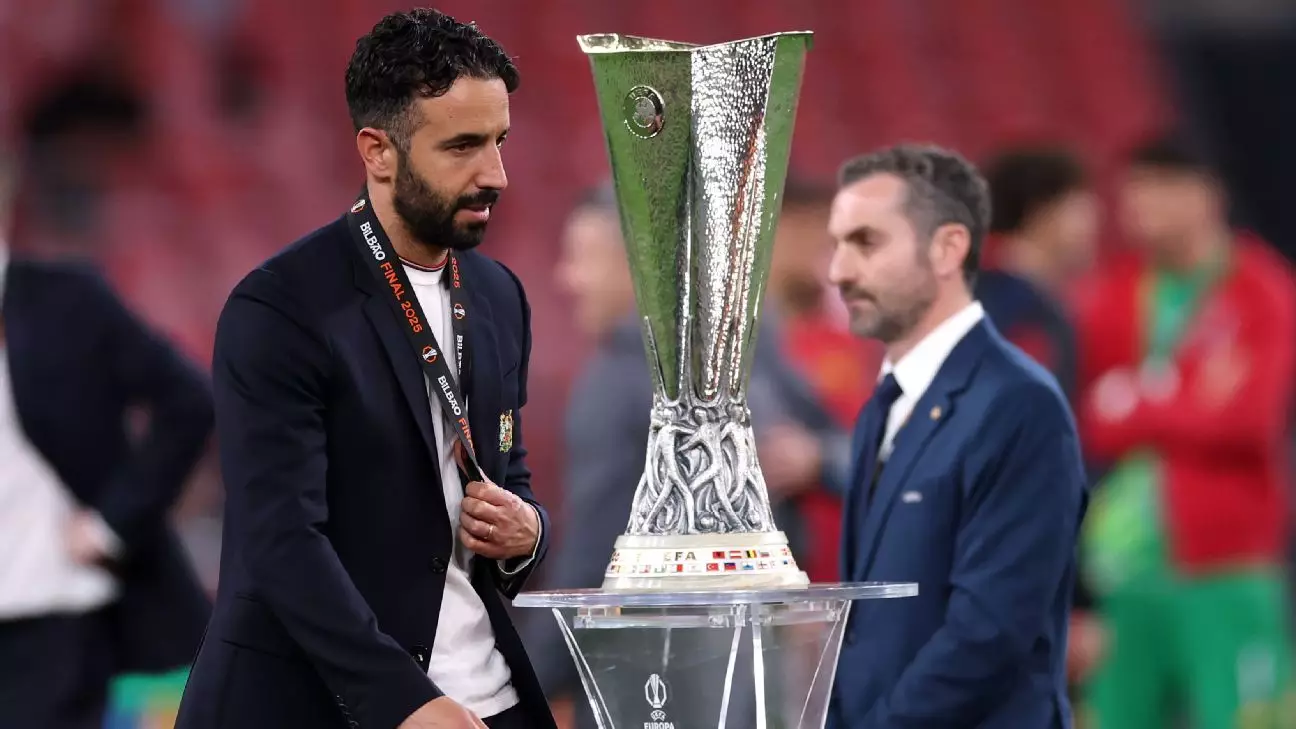In the world of football management, few challenges can rival the significant burden of leading a storied club like Manchester United, especially amidst turbulent times. Despite a disappointing 1-0 defeat to Tottenham in the Europa League final, rumors of Ruben Amorim’s job security have nuanced implications for the club’s future. Unlike many managers who might be judged by the immediate results, it appears that United’s hierarchy has opted for a long-term vision centered around Amorim, a decision that, while surprising to some, speaks volumes about their commitment to finding stability in an era characterized by inconsistency.
Amorim’s tenure thus far, which has included a disheartening record of 14 defeats out of 26 Premier League matches, raises pressing questions about his tactical acumen and ability to mold the team. However, the belief in his capabilities is an encouraging sign for supporters who crave a coherent strategy rather than a quick fix. The club’s confidence in Amorim appears informed by an understanding that rebuilding is often a turbulent process, demanding patience and resilience.
The Financial Shadow of Missed Opportunities
The absence from European competitions next season could have dire financial implications for Manchester United, specifically missing out on approximately £100 million in revenue from the Champions League. Transfers and squad augmentation are essential to any successful campaign, yet Amorim’s comments suggest an awareness of the fiscal limitations that lie ahead. “We have to use the other side,” he articulated, indicating that while the squad may not be as financially fortified for the summer transfer window, they would leverage their time to focus more intensively on the Premier League.
This pragmatic approach sheds light on Amorim’s character—a trait that may indeed be what United needs at this juncture. Acknowledging the necessity for adaptation, he emphasizes the need to prioritize essential improvements over flashy signings. In an age where instant results often overshadow enduring strategy, a steady hand at the helm can offer more than just results; it can cultivate a culture of perseverance.
The Fans: A Crucial Element of the Equation
Another factor amplifying Amorim’s position is the unwavering support from the fanbase, expected to vocalize their allegiance during the last home game against Aston Villa. In the face of fervent criticism, this backing is invaluable for the players and staff alike. The emotional investment of supporters creates an atmosphere that can significantly influence the club’s trajectory. Amorim himself has noted the importance of this rapport, stressing that the eventual evolution of the team is a collective effort that extends beyond managerial strategies.
While the landscape surrounding Manchester United is fraught with complexities, Amorim’s resilience in the face of adversity, alongside the fans’ support and the club’s long-term strategic focus, should not be underestimated. All of this points toward a transition not merely dependent on immediate outcomes, but profoundly rooted in a larger vision for resurgence in the coming seasons. The aggregate of factors that contribute to Amorim’s mandate—alongside the inevitable challenges he faces—portrays a compelling narrative of hope amid uncertainty at Old Trafford.

